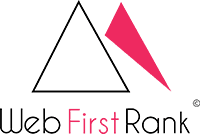- 9 February 2023
- by Ahmed Bouselmi
- Non classé
Search engine optimization (SEO) is an essential part of today’s business landscape. With more and more people turning to the internet to find products and services, it’s crucial for businesses to have a strong online presence. SEO is the process of optimizing a website to improve its visibility and searchability on search engines like Google. By implementing SEO strategies, businesses can increase website traffic, attract more customers, and ultimately boost revenue.
-A Brief Overview of SEO :
SEO (Search Engine Optimization) is the practice of optimizing a website to increase its visibility and ranking in search engine results pages (SERPs). The goal of SEO is to improve the website’s ranking in order to drive more organic traffic to the site. This is achieved by making changes to the website’s content, structure, and technical aspects in order to improve its relevance and authority for relevant keywords and phrases. The ranking factors considered by search engines include keyword optimization, content quality, website design and structure, and backlink quality and quantity. SEO is a long-term strategy that requires constant monitoring, testing, and optimization to be effective.
-How does SEO work:
SEO works by optimizing a website to improve its ranking in search engine results pages (SERPs). The process of SEO involves making changes to the website’s content, structure, and technical aspects to improve its relevance and authority for specific keywords and phrases.
The main elements of SEO include:
1.Keyword research:
Identifying relevant keywords and phrases that potential customers are searching for and optimizing the website’s content and meta tags to include those keywords.
2.On-page optimization:
Improving the website’s content, structure, and internal linking to make it more user-friendly and relevant to search engines.
Off-page optimization: Building high-quality backlinks from other websites to increase the website’s authority and credibility.
3.Off-page optimization:
Building high-quality backlinks from other websites to increase the website’s authority and credibility.
4.Technical optimization:
Improving the website’s technical elements, such as site speed, mobile responsiveness, and crawlability, to ensure that it meets the requirements of search engines.
-SEO and brand awareness:
SEO and brand awareness are closely interconnected and can greatly impact each other. Brand awareness refers to the recognition and understanding of a brand and its products or services by a target audience. SEO, on the other hand, focuses on improving the online visibility and ranking of a website in search engine results pages. By optimizing a website for relevant keywords and phrases, the website can attract more organic traffic and drive more visibility to the brand. This increased visibility can lead to greater brand recognition and understanding, thus strengthening brand awareness. On the other hand, a strong brand awareness can also improve SEO performance. Search engines consider brand reputation and authority when ranking websites, and a strong brand can help to establish trust and credibility with search engines, leading to improved rankings and increased visibility. Thus, by focusing on both SEO and brand awareness, businesses can effectively drive online visibility, attract more traffic, and grow their brand recognition.
-Local SEO and small business:
Local SEO is a specialized form of SEO that focuses on optimizing a small business website to rank higher in search engine results pages (SERPs) for local searches. The goal of local SEO is to increase the visibility and relevance of the small business in local search results, helping potential customers to find the business more easily and increasing the chances of generating leads and sales.
Here are some key elements of local SEO for small businesses:
1.Local citations:
Creating accurate and consistent business listings on local directories and mapping platforms, such as Google My Business and Yelp, to help search engines understand the business’s location and services.
2.Local keywords:
Optimizing the website’s content and meta tags to include relevant local keywords and phrases, such as the business’s name, address, and phone number (NAP), and the services it offers.
3.Customer reviews:
Encouraging satisfied customers to leave positive reviews on local directories and mapping platforms, as search engines consider these reviews when ranking local businesses.
4.On-page optimization:
Improving the website’s content and structure to make it more user-friendly and relevant to local search engines.
5.Backlinks:
Building high-quality backlinks from other local websites to increase the website’s authority and credibility.
By implementing these elements, small businesses can improve their local search visibility and attract more local customers. Local SEO is a cost-effective marketing strategy that can help small businesses to compete with larger, more established companies in their local area.
-Organic VS paid search
Organic search and paid search are two different approaches to increasing a website’s visibility in search engine results pages (SERPs).
Organic search refers to the natural or organic results that appear in SERPs based on the relevance and authority of the website’s content and structure. These results are earned through search engine optimization (SEO) efforts, such as keyword research, content optimization, and link building. Organic search is free, but it can take time to see results and competition for high rankings is intense.
Paid search, on the other hand, involves paying for search engine advertising, such as Google AdWords, to appear at the top of SERPs for specific keywords and phrases. Paid search offers quick results, but it can be expensive and businesses have limited control over the ranking and visibility of their ads.
In choosing between organic and paid search, businesses should consider their goals, target audience, and budget. Some businesses may choose to invest in both organic and paid search for a comprehensive and effective search marketing strategy, while others may focus on one approach or the other.
-The importance of SEO agencies:
SEO agencies are crucial for businesses looking to establish and maintain a strong online presence. These agencies offer specialized knowledge and experience in optimizing a company’s website for search engines, increasing visibility and driving traffic. Working with an SEO agency can save a business valuable time and resources, as the agency can handle all aspects of the SEO process and implement data-driven strategies for maximum results. Additionally, SEO is constantly evolving, and an agency can provide businesses with the latest updates and best practices to stay ahead of the competition. By partnering with an SEO agency, businesses can focus on their core operations while the agency ensures their online visibility remains strong and effective.
In conclusion, SEO is an essential part of today’s business landscape. It helps to establish a brand as a reputable and authoritative source, reach the target audience, and increase website traffic, ultimately leading to more customers and increased revenue. With more and more people using the internet to find products and services, SEO has become a must-have for businesses that want to stay competitive and reach their target audience.
-The Future of SEO:
The field of SEO is constantly evolving, with new algorithms and ranking factors being introduced all the time. While the basics of SEO remain relatively constant, it’s important to stay up-to-date on the latest trends and best practices in order to ensure that your website is ranking highly and attracting the right












